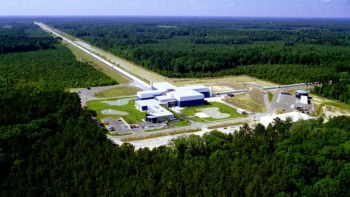
Researchers have welcomed a plan by Saudi Arabia to build a new renewable-energy “city” as a sign of the oil-rich nation’s commitment to developing alternative fuel sources. The King Abdullah City for Atomic and Renewable Energy (KACARE) will be based in the nation’s capital Riyadh after the Saudi ruler, King Abdullah, issued a royal decree in April to order its creation. It will serve as a centre for renewables research and for co-coordinating national and international energy policy.
While it is not yet clear when KACARE will be opened, the King has appointed a president for the city – Hashim bin Abdullah Yamani, a former minister for commerce and trade. In a statement to the Saudi Press Agency, Yamani said, “Establishment of the city will contribute to achieving sustainable development in the kingdom through exploiting the science, research and industry of atomic and renewable energy for peaceful purposes.”
The announcement to create the new city comes just six months after the official opening of the King Abdullah University of Science and Technology (KAUST), a multi-billion dollar research centre with energy and environment amongst its core research activities. Both these projects have received the financial backing of the King Abdullah. Since coming to the throne in 2005, the King has been aware that while the country’s oil and gas reserves are deep they are not infinite – and that Saudi Arabia must use its current wealth to prepare for a future with dwindling fossil fuels. His vision for KAUST is to provide a world-class university that can develop, among other things, more sustainable technologies.
More focused approach
It makes a whole lot of sense to diversify [Saudi Arabia’s] energy future, particularly by seeking to utilize solar energy – KSA sits in a region of high solar intensity and minimal cloud cover Tony Eastham, director of labs, KAUST
With KACARE, King Abdullah wants to create a more specialized centre that focuses on harnessing the nation’s other natural resources. Given its desert climate, Saudi Arabia is keen to develop a solar energy infrastructure, and it is also looking to develop nuclear energy, an approach mirrored by the other member states of the Gulf Cooperation Council – the United Arab Emirates, Quatar, Bahrain, Kuwait and Oman. KACARE will also be given the responsibility of drafting a national policy for nuclear power, as well as supervising the use of atomic energy and nuclear waste. It will represent Saudi Arabia at the International Atomic Energy Agency (IAEA).
The creation of KACARE is welcomed by Tony Eastham, the director of labs at KAUST who agrees that Saudi Arabia is right to realize that its oil reserves will not last forever. “It makes a whole lot of sense to diversify its energy future, particularly by seeking to utilize solar energy – KSA sits in a region of high solar intensity and minimal cloud cover,” he says.
Eastham is keen to build links between KAUST and KACARE from the outset. “We and KACARE need to develop collaborations with the best in the region and the best in the world. No-one has an exclusive on great ideas – we need to listen, be aware of what is happening worldwide, and form partnerships to stay at the leading edge of energy science and technology,” he says.
Wider cultural change?
Chukwumerije Okereke of the Smith School of Enterprise and Environment at the University of Oxford thinks that the creation of KACARE could be symbolic of a wider cultural change among the oil-producing nations of the Middle East. He believes that Saudi Arabia and the other countries belonging to OPEC (Organization of the Petroleum Exporting Countries) are coming to realize that sustainability and climate change are now key national issues.
Okereke says that the OPEC countries have previously been somewhat “retrogressive” in international climate negotiations and he blames this on a lack of effective policy-making in these countries. “In so many cases, climate change was framed as a win-lose situation – if you act on climate change, by investing in new technologies, you lose out on your economy.” But he believes there are signs to show that the situation is changing. “There have been various announcements and ‘noises’ over the past five years from countries including Kuwait and the United Arab Emirates to suggest that they are willing to consider renewables now.”
Once KACARE is inaugurated by King Abdullah, it will have an independent annual budget, but will be able to draft budgets for programmes lasting for more than a year if required. Financing the centre will be made through allocations of the state budget, and revenues achieved by the KACARE in addition to grants and endowments if accepted by the city council.
“The city will first attempt to specify priorities and national policies in the field of atomic and renewable energy to build a strong scientific and technologic base in the fields of power and desalinated water, in addition to medical, industrial, agricultural and mineral fields,” says Hashim bin Abdullah Yamani, the future KACARE president.
![KACARE will be more specialized than KAUST [above], which opened in September KACARE will be more specialized than KAUST [above], which opened in September](https://physicsworld.com/wp-content/uploads/2010/05/kacare1.jpg)



